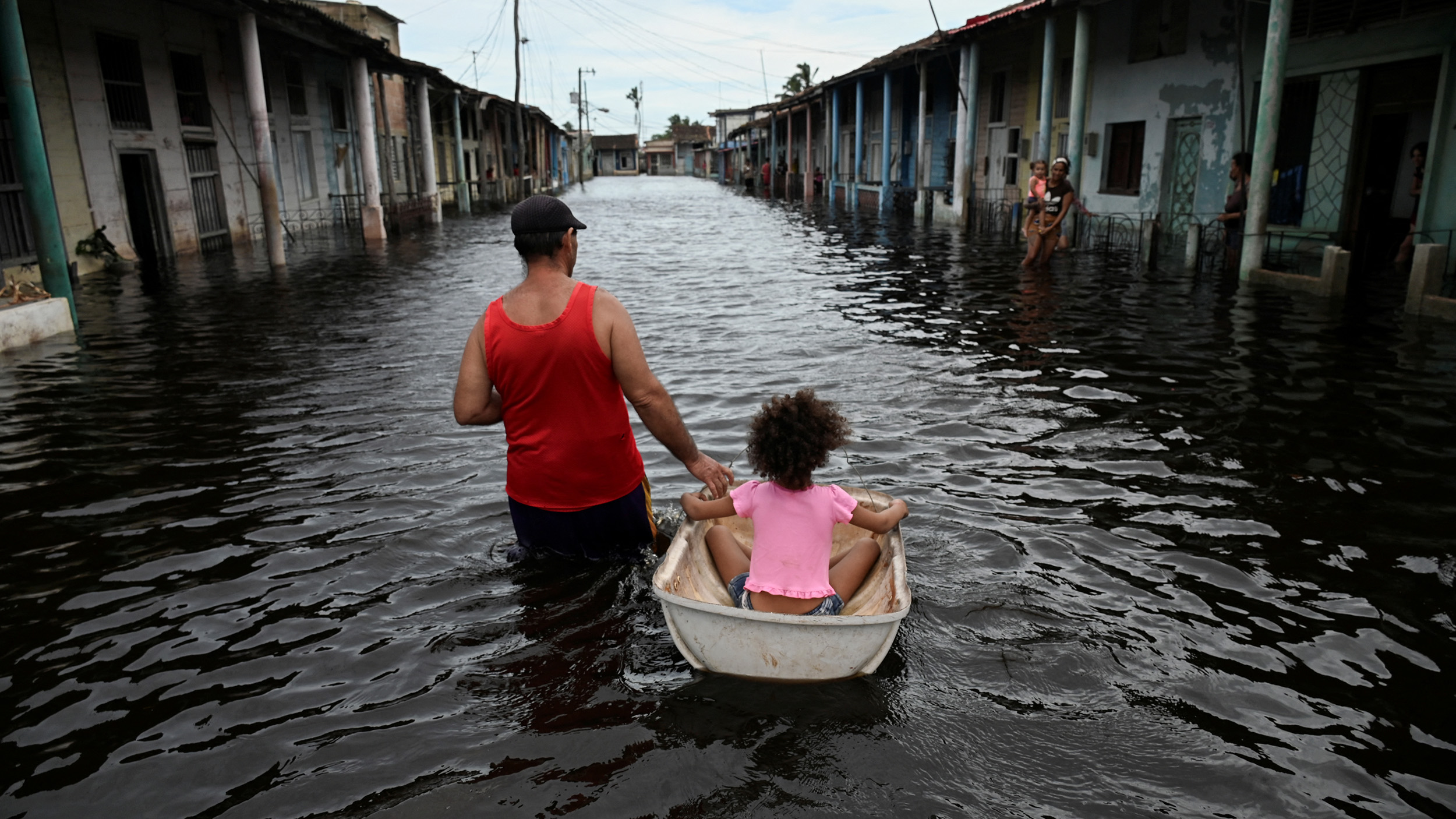‘Climate apartheid’: Report says the rich could buy out of climate change disaster

(Photo by SSPL/Getty Images)
- A new report from a United Nation expert warns that an over-reliance on the private sector to mitigate climate change could cause a “climate apartheid.”
- The report criticizes several countries, including the U.S., for taking “short-sighted steps in the wrong direction.”
- The world’s poorest populations are most vulnerable to climate change even though they generally contribute the least to global emissions.
Global warming could create a “climate apartheid,” where rich people pay to escape the worst effects of climate change while poor people are left to suffer, according to a new United Nations report.
“Even if current targets are met, tens of millions will be impoverished, leading to widespread displacement and hunger,” wrote the UN Special Rapporteur on extreme poverty and human rights, Philip Alston, in a report released today. Alston penned the report to make the UN Human Rights Council “face up to the fact that human rights might not survive the coming upheaval.”
“Climate change threatens to undo the last 50 years of progress in development, global health, and poverty reduction,” Alston said. “It could push more than 120 million more people into poverty by 2030 and will have the most severe impact in poor countries, regions, and the places poor people live and work.”
A lack of action from world governments could lead to an over-reliance on the private sector to respond to climate change, Alston wrote. This could cause not only a climate-apartheid scenario, but also the destruction of the rule of law.
“…a wide range of civil and political rights are every bit at risk,” he wrote. “The risk of community discontent, of growing inequality, and of even greater levels of deprivation among some groups, will likely stimulate nationalist, xenophobic, racist and other responses. Maintaining a balanced approach to civil and political rights will be extremely complex.”
Alston criticized several countries for taking “short-sighted steps in the wrong direction”: Brazil, for promising to open up the Amazon Rainforest for mining; the US, for placing former lobbyists in oversight roles and “actively silencing and obfuscating climate science”; and China, for “exporting coal-fired power plants abroad and failing to implement its regulations for methane emissions at home.”
Alston also wrote that the UN’s actions have been “patently inadequate” and “entirely disproportionate to the urgency and magnitude of the threat.” The new report is set to be presented to the UN Human Rights Council on Friday.
Climate change and inequality
The poorest populations will likely suffer most from climate change, primarily because they’re more likely to live in areas that are especially vulnerable to natural disasters, sea-level rise and volatile market changes. But it’s worth noting that, in general, these poor populations actually contribute the least to global emissions.
“The poorest half of the world’s population—3.5 billion people—is responsible for just 10 percent of carbon emissions, while the richest 10 percent are responsible for a full half,” Alston wrote. “A person in the wealthiest 1 percent uses 175 times more carbon than one in the bottom 10 percent.”
Climate change has increasingly become a focus of human rights groups, due in part to these disparities. In 2015, the Paris Agreement became the first climate-related treaty to mention human rights, stating that all parties must acknowledge their obligations to groups such as migrants, indigenous peoples and people in vulnerable situations.
Alston wrote that it’s time for the U.N. Human Rights Council to devise “specific actions.”
“The Human Rights Council can no longer afford to rely only on the time-honored techniques of organizing expert panels, calling for reports that lead nowhere, urging others to do more but doing little itself, and adopting wide-ranging but inconclusive and highly aspirational resolutions,” he wrote. “It should commission an urgent expert study to identify options available and organize a high-level working group to propose and monitor specific actions.”





